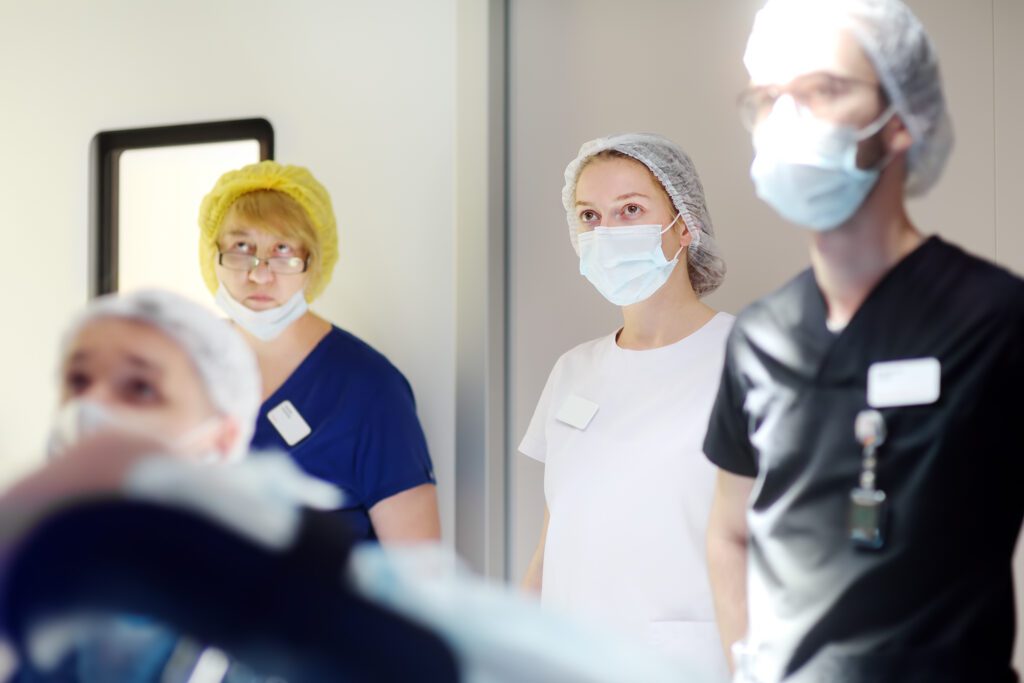How to Successfully Transition to Med School (Top Tips & FAQs)
- by
- Apr 04, 2023
- Reviewed by: Amy Rontal, MD

Congratulations on your recent acceptance into medical school! Getting in is no easy task and I’m sure many would love to be in your shoes. This post is written for premedical students who are about to embark on their medical school journey and looking for tips to smoothly transition into a successful first year of medical school.
How to Successfully Transition from Pre-Med to Med School
Tip #1: Move-in early.
A week or two before classes begin should allow you plenty of time to seek out good med school study spots such as local libraries or coffee shops. Furthermore, arriving early and setting up your living space is important. Make it a space you enjoy, but can also work and focus in. Ensure you have fast, reliable Internet access and set up a space for breaks. Meet your neighbors, find a convenient and well-stocked grocery store, and join a gym or yoga studio or maybe even a local sports league.
Tip #2: Get tech-savvy.
If you didn’t already have one in college, make sure you own a reliable, fast, and updated computer. Due to COVID-19, a significant portion of medical education is now taught online and you don’t want to be caught lagging behind with a slow PC. Prior to a new purchase, check to see if your school has specific computer requirements. A desktop is fine, but make sure you have a laptop to bring to class for lectures, emails, notes, etc.
Tip #3: Be ready to study.
You will be studying on day one of medical school, reviewing lectures, working on clinical cases, or reading medical handouts. Have your study space ready including desk and monitor setup. Buy a comfortable office chair, as you’ll spend quite a bit of time in it. Consider a whiteboard or study planner to stay on top of your study schedule, or even a standing desk if you’re into that.
Starting medical school and looking to build your anatomy knowledge? We’ve got you covered. Redeem your FREE Anatomy Qbank from Rosh Review today!
One thing you’ll immediately notice about medical school coursework is the high volume of information. This is where you build the foundation of medical knowledge that carries forward to the rest of your career. MS1 year will include the introduction to medicine from the building blocks of human physiology, anatomy, and pathology to pharmacology. With all of the available knowledge and research out there, it is impossible to “know it all.”
The truth is, you’ll be learning well past medical school, residency, fellowship, and even being an attending physician—and you’ll still feel like there’s ever more to know. So it goes, “medicine is lifelong learning.”
Tip #4: Learn about active study skills.
Not only will you need to memorize the material covered in the first year, you will also need to understand, apply, and retain it. Because of this, it is important to familiarize yourself with active recall studying!
Let’s face it: your study style in medical school will be different from what you used in your pre-medical courses. The coursework builds on itself, so you can’t pick and choose only the interesting things to learn. Being actively present in class, asking questions, and using active recall will help.
Tip #5: Stay organized.
There are many helpful tools you can use, so try out a few organizer apps and pick one that you like. Use a calendar or reminder app for tasks, meetings, extracurriculars, and studying. Create a study schedule and make it a habit to study so you do not fall behind. Falling behind a lecture or two can quickly spiral out of control because much of the material is dependent on prior lectures. Becoming organized during your first year will pay dividends when you become a busy third or fourth year trying to juggle application deadlines with residency interviews and a busy clinic schedule.
Tip #6: Remember you’re in it for the long haul.
The USMLE/COMLEX exams will test your cumulative knowledge—prepare accordingly. Think about long-term comprehension and retention. This will help when you prepare for your national exams, clinical rotations, and most importantly, when you take care of your own patients. Plan to spend a significant amount of your MS1 year glued to your chair (or upright at your standing desk) staring at a monitor. Build up your endurance to focus and learn to study effectively, without distractions. This will save you time and help you learn more with less effort.
Tip #7: Avoid resource overload.
There are tons of resources and study materials. Wisely choose a few you like for each subject and stick with them—you don’t have the time to study every resource and you won’t have the time to waste constantly switching between them. Question banks are the highest yield for most situations!
Tip #8: Ask for help.
Lastly, make sure you ask for support when you need it. In medical school, asking for help can be one of your biggest challenges, but also your greatest strength! You’ll need a great support system to help you along your journey, whether it’s your classmates, advisors, or a tutor. (Not sure if you need a tutor? Bookmark this page for whenever you get stuck along your first year of medical school.)
Frequently-Asked Questions for Future Medical Students
Q: Should pre-med students start studying and preparing for med school before their first day?
NO! Once school starts, you’ll have plenty of studying on your plate. Instead, build up your support system, make new friends, join a sports league, or find study spots if you move early to a new city for school. Discover restaurants you enjoy and shops you like. This will make life easier when you are busy hitting the books.
But what if I really want to study? My answer is the same, just don’t do it. If you absolutely feel the need for something educational during your summer off, consider clinical research. A publication or even research experience will strengthen your CV and allow you to build important relationships, among other positives.
Q: How can I socially transition into medical school?
Be yourself. Four years is a long time to pretend to be someone else. Continue to build on your interests while also maintaining a healthy attitude to try new things—you’ll easily connect with others that way. For me, I started playing ultimate frisbee in medical school. Now, 8 years later, I play competitively and have met many amazing people along the way.
Remember to make friends with your classmates. You are all going through the same process together as you adjust to medical school life and are molded into future physicians. In addition to commiserating about the difficulties of anatomy lab, you and your peers can form study groups, which is a great way to share resources and cover lecture material.
Reminder: even as you make new friends, don’t forget to check in with existing ones, as well as your family and other loved ones!
Q: Any tips for transitioning to a new city/location for med school?
This is as true for medical school as moving for any job or any other professional school: live in a place you like and can afford that is close to the school and rotating hospitals. This is important as you start so you do not dread the commute. In the long run, it will save you time and hassle. This is especially important once you transition into clinical rotations and have to go into your shift at 5 a.m. and come home at 9 p.m.!
Consider housing near public transit, as well as proximity to things you enjoy and are known to frequent—parks (a dog park if you have a dog), gyms, restaurants, grocery stores, libraries, coffee shops, and more.
Q: How do I stay on top of my finances as a medical student?
Use loans wisely, but don’t forget to treat yourself—you made it into medical school and (if successful), will one day become a top earner. Don’t be wasteful and don’t take on too much in loans—med schools offer extra, you likely don’t need all of what they offer. Live within your means, and don’t forget that loans will need to be repaid, so don’t use more than you need to live comfortably.
About the Author
Mike is a driven tutor and supportive advisor. He received his MD from Baylor College of Medicine and then stayed for residency. He has recently taken a faculty position at Baylor because of his love for teaching. Mike’s philosophy is to elevate his students to their full potential with excellent exam scores, and successful interviews at top-tier programs. He holds the belief that you learn best from those close to you in training. Dr. Ren is passionate about his role as a mentor and has taught for much of his life – as an SAT tutor in high school, then as an MCAT instructor for the Princeton Review. At Baylor, he has held review courses for the FM shelf and board exams as Chief Resident. For years, Dr. Ren has worked closely with the office of student affairs and has experience as an admissions advisor. He has mentored numerous students entering medical and residency and keeps in touch with many of them today as they embark on their road to aspiring physicians. His supportiveness and approachability put his students at ease and provide a safe learning environment where questions and conversation flow. For exam prep, Mike will help you develop critical reasoning skills and as an advisor he will hone your interview skills with insider knowledge to commonly asked admissions questions.










